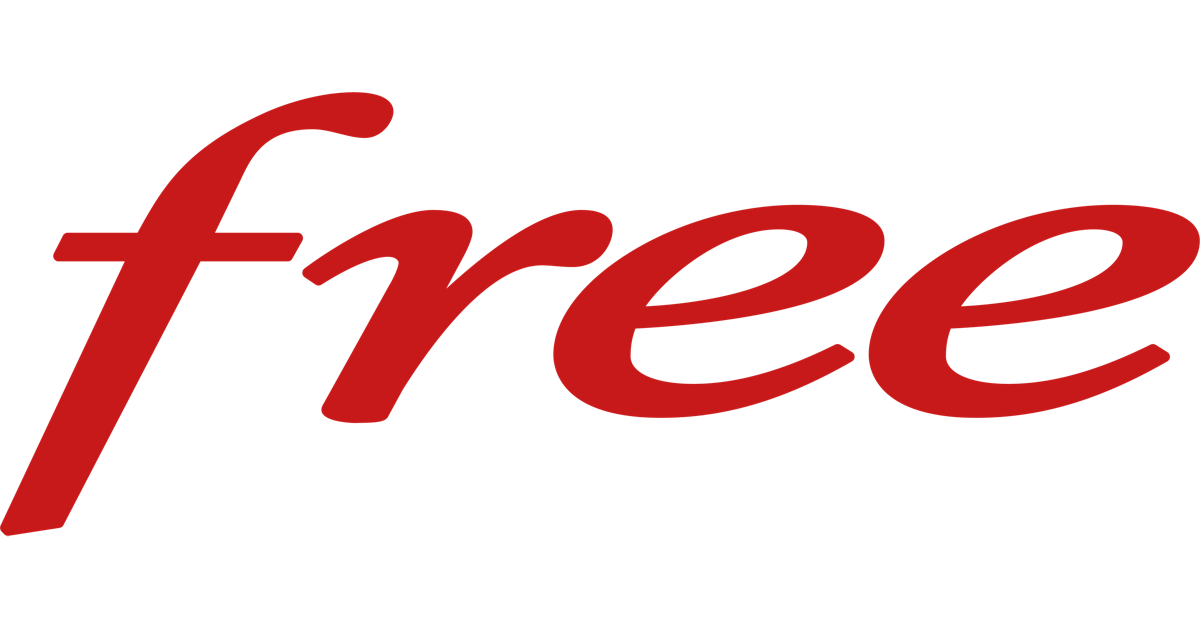Free Cars Craigslist: Navigating the World of Zero-Dollar Vehicles sale.truckstrend.com
The dream of a "free car" often conjures images of effortless acquisition, a magical solution to transportation woes without the burden of a car payment or hefty down payment. For many, this dream leads directly to Craigslist, a sprawling online marketplace where everything from antique furniture to job listings can be found. But is finding a truly "free car" on Craigslist a reality, or is it merely an elusive myth?
This comprehensive guide delves into the intriguing world of "Free Cars Craigslist," unraveling what this term truly means, how to navigate the platform to find such offers, the hidden costs involved, critical legal considerations, and practical advice to help you decide if pursuing a "free" vehicle is the right path for you. Far from a simple handout, acquiring a "free car" typically involves a significant investment of time, effort, and often, money. Understanding these nuances is crucial before embarking on your quest for a zero-dollar ride.
Free Cars Craigslist: Navigating the World of Zero-Dollar Vehicles
Understanding "Free Cars Craigslist": More Than Just a Handout
When someone lists a car as "free" on Craigslist, it rarely means you’re driving away in a perfectly functioning, road-ready vehicle without spending a dime. The term "free" in this context almost always implies that the initial acquisition cost is zero. The vehicle is being given away, not sold. So, why would someone give away a car? The reasons are varied:
- Unwanted Burden: The owner might have inherited a non-running car, or a vehicle has been sitting on their property for too long, accumulating rust and becoming an eyesore or a municipal code violation. They just want it gone.
- Cost of Disposal: Disposing of a junk car properly can cost money, especially if it needs to be towed or if there are environmental concerns. Giving it away is a way to offload this expense.
- Parts Car: The car might be beyond repair for the owner, but it still has valuable components that someone else could use for another vehicle.
- "Mechanic’s Special": The car might have a major mechanical issue (blown engine, bad transmission) that makes it uneconomical for the current owner to repair, but someone with the skills or resources might see potential.
- Abandoned Vehicles: Sometimes, vehicles are simply abandoned on private property, and the property owner wants them removed. Legal steps might be required to transfer ownership in these cases.
- Sentimental Value (Rare): Occasionally, someone might give away a cherished old car to an enthusiast who promises to restore it, rather than selling it for scrap. These instances are rare.

The common thread is that the vehicle typically has little to no market value in its current state, or its removal/disposal is more of a priority for the owner than selling it.
Navigating Craigslist for "Free" Cars
Finding a "free" car on Craigslist requires patience, specific search strategies, and a keen eye.

Effective Search Strategies
- Keywords are Key: Don’t just search for "free car." Expand your search terms to include:
- "Free"
- "Junk car"
- "Parts car"
- "Giveaway"
- "Scrap car"
- "Project car" (sometimes listed as free if the owner gives up)
- "Needs engine/transmission" (often indicates a free or very cheap offer)
- "You haul" or "Must tow" (common for free vehicles)

- Browse Relevant Sections:
- "For Sale" by Owner (Cars & Trucks): This is your primary hunting ground. Many people will list a "free" car here, clearly stating it in the title or description.
- "Free Stuff" (For Sale category): Less common for entire vehicles due to size, but sometimes smaller items related to cars or parts might be found here.
- "Wanted": You can also post a "Wanted" ad, specifying that you’re looking for a free or very cheap project car, a parts car, or a vehicle that needs to be hauled away. Be specific about what you’re willing to take.
- Location and Timeliness:
- Filter by Location: Set your search radius to cover areas you’re willing to travel. Wider radii increase your chances.
- Act Quickly: When a genuinely "free" car is posted, especially one with any perceived potential, it often gets snatched up within hours. Set up email alerts if possible, or check Craigslist frequently throughout the day.
Types of "Free" Cars You Might Find
The "free" cars on Craigslist typically fall into a few categories, each with its own set of challenges and potential:
- Non-Running/Project Cars: These are the most common. They might have a blown engine, a seized transmission, major electrical issues, or simply have been sitting for years and no longer start. They require significant mechanical work, parts, and potentially a full restoration.
- Parts Cars (No Title): Often, these vehicles are given away specifically for their components. They may be incomplete, severely damaged, or lack a clear title, making them impossible to register for road use. They are valuable only to someone who needs specific parts for another vehicle.
- Abandoned Vehicles: These are cars left on private property by previous tenants, unknown individuals, or even family members who have moved on. Acquiring legal ownership can be complex and varies by state, often involving a lengthy abandoned vehicle process through the DMV or local law enforcement.
- Vehicles Needing Extensive Body/Rust Repair: While mechanically sound, some "free" cars might be riddled with rust, accident damage, or missing body panels. Repairing these can be costly and labor-intensive.
- Rare "Diamonds in the Rough": While exceedingly rare, it’s not impossible to find a car that just needs minor TLC (e.g., a dead battery, flat tire, or a simple sensor replacement) that the owner doesn’t have the time or inclination to fix. These are the lottery wins of "free cars" and require immediate action.
The Due Diligence Checklist Before Accepting a "Free" Car
This is arguably the most critical section. A "free" car can quickly become a financial black hole if you don’t do your homework.
1. Title and Registration: The Absolute Priority
- Clear Title is Non-Negotiable: For any car you intend to register and drive legally, a clear, transferable title is paramount. If the seller doesn’t have the title, or it’s a salvage title you can’t work with, walk away immediately. Without a title, you cannot legally register the vehicle, sell it, or prove ownership.
- Matching Information: Ensure the VIN on the title matches the VIN on the car (typically on the dashboard and driver’s side door jamb). Verify the seller’s ID matches the name on the title.
- Lien Check: Ask the seller if there are any outstanding liens on the vehicle. Even if they say no, it’s wise to do a VIN check through your state’s DMV or a service like CarFax/AutoCheck to confirm. You don’t want to inherit someone else’s debt.
- Salvage/Junk Titles: Understand the implications of these titles in your state. Some states make it very difficult or impossible to register a car with a salvage title for road use without extensive inspections and repairs.
2. Condition Assessment (Even if Non-Running)
- Rust: Check for severe rust, especially on the frame, suspension mounting points, brake lines, and floorboards. Extensive rust can make a car unsafe and unrepairable.
- Fluid Leaks: Look for oil, coolant, transmission fluid, or brake fluid leaks under the car.
- Major Damage: Inspect for signs of major accidents, bent frames, or significant body damage.
- Missing Components: Are essential parts (engine, transmission, wheels, interior components) missing? Factor this into your repair cost estimates.
- Tires: Even if flat, assess the overall condition of the tires.
- Interior Condition: Water damage, mold, or extreme wear can indicate larger issues or significant cleaning costs.
3. Mechanical Inspection (As Best as Possible)
- Engine: If possible, try to turn the engine by hand (with a wrench on the crankshaft pulley). Does it turn freely, or is it seized? Check oil and coolant levels and appearance.
- Transmission: If the engine runs, test the transmission if possible. If not, check fluid levels and color.
- Brakes: Check for seized calipers or severe corrosion.
- Under the Hood: Look for disconnected wires, chewed hoses (rodent damage), or obvious signs of neglect.
4. Seller Verification and Questions
- Ask for Their Story: Why are they giving it away? How long have they owned it? What’s wrong with it? A legitimate seller will be transparent.
- Documentation: Request any service records, owner’s manuals, or other paperwork.
5. Vehicle History Report (If VIN Available)
Even for a free car, running a CarFax or AutoCheck report using the VIN can provide invaluable information about past accidents, mileage discrepancies, flood damage, and title issues. This small upfront cost can save you thousands.
Costs Associated with "Free" Cars
The biggest misconception about "free cars" is that they cost nothing. This is rarely the case. Prepare for these inevitable expenses:
| Cost Category | Estimated Range (USD) | Description | Importance |
|---|---|---|---|
| Towing/Transportation | $50 – $500+ | If the car doesn’t run, you’ll need a tow truck or a flatbed rental. Distance is a major factor. | Essential for acquiring the vehicle. |
| Parts for Repair | $100 – $5,000+ | Engines, transmissions, brakes, tires, electrical components, body parts. Varies wildly by car and issue. | The core cost of making the car drivable. |
| Labor for Repair | $0 (DIY) – $1000s | If you can’t do the work yourself, mechanics’ fees add up quickly. | Can easily exceed the value of the car if major work is needed. |
| Title Transfer Fees | $20 – $200+ | State-specific fees for transferring ownership. | Legally required to register the car in your name. |
| Registration Fees | $50 – $500+ (annual) | Annual fees to register the vehicle for road use. | Legally required to drive the car. |
| Sales Tax | Varies by state | Some states charge sales tax even on "gifted" vehicles, based on fair market value. | Can be a surprise cost; check your state’s DMV. |
| Vehicle Inspection | $20 – $100 | Safety and emissions inspections are required in many states before registration. | Mandatory in many jurisdictions. |
| Insurance | $50 – $200+ (monthly) | Legally required for any vehicle driven on public roads. Rates vary based on car, driver, and coverage. | Non-negotiable for road use. |
| Tools | $0 (existing) – $500+ | If you plan to DIY, you might need specific tools (jack stands, wrench sets, diagnostic scanner, etc.). | Necessary investment for DIY repairs. |
| Fluids/Maintenance | $50 – $200 | Oil change, coolant flush, new filters, spark plugs, etc., often needed after sitting. | Basic maintenance to get the car running reliably. |
| Storage | $50 – $200+ (monthly) | If you don’t have space, you might need to rent storage while repairing. | An often overlooked cost, especially for long-term projects. |
| Scrap/Disposal | -$50 to $100+ | If the project fails, you might get paid for scrap metal, or have to pay for disposal. | The cost of failure; good to know your exit strategy. |
Note: All figures are estimates and can vary significantly based on vehicle type, condition, location, and local labor rates.
Legal Considerations and Pitfalls
Navigating the legal landscape of "free cars" is just as important as assessing their mechanical state.
- Title Transfer Laws: Each state has specific laws regarding vehicle title transfers. Understand the process thoroughly before accepting a car. Some states require notarized signatures, specific forms, or even proof of inspection before a title can be transferred.
- Abandoned Vehicle Laws: If you acquire a car that was truly abandoned (e.g., on your property), there’s a legal process to claim it. This often involves notifying the last registered owner, holding it for a specified period, and then applying for a title through the DMV, often with law enforcement involvement. This is not a quick process.
- Scams: Be wary of common scams:
- Upfront Money: Never pay money for a "free" car, even for "paperwork fees" or "delivery charges."
- No Physical Inspection: Never agree to take a car sight unseen.
- Pressure Tactics: Be suspicious if the seller is overly pushy or vague about details.
- "Sister’s Car": Scammers often claim the car belongs to a relative who is out of town, to avoid meeting in person or providing proper documentation.
- Environmental Regulations: If the car is a true junker, be aware of regulations regarding the disposal of fluids (oil, coolant, brake fluid) and hazardous materials (batteries). You are responsible for proper disposal, even if you acquired it for "free."
Tips for Success
If you’re still determined to find a "free" car, here are some tips to maximize your chances of success and minimize your risks:
- Patience and Persistence: Finding a suitable "free" car, especially one with a clear title and some potential, is like finding a needle in a haystack. It requires constant monitoring of listings and quick action.
- Know Your Limits: Be realistic about your mechanical skills, available tools, and budget for repairs. If you’re not mechanically inclined, factor in professional labor costs, which can quickly make a "free" car more expensive than a cheap used one.
- Have a Plan B: What will you do if the car is unfixable? Do you have a way to scrap it or sell it for parts?
- Bring a Knowledgeable Friend: If you’re not a mechanic, bring someone who is, or at least someone who understands cars, to inspect the vehicle with you.
- Negotiate (Even on "Free"): While the car is "free," you might be able to negotiate for the seller to assist with towing, or to provide any spare parts they might have.
- Clear Communication: Get everything in writing, especially regarding the title and any agreed-upon conditions.
- Prioritize the Seriously, if there’s no clear title, it’s a paperweight, not a car.
Alternative Approaches to Getting a Cheap Car
If the complexities of "free cars" seem daunting, there are other avenues to acquire affordable transportation:
- Government/Police Auctions: Vehicles impounded or seized by law enforcement are often sold at public auctions for very low prices. These usually come with clear titles.
- Charity Donations: Some charities accept car donations and then sell them. You might be able to purchase one of these vehicles at a low price.
- Repo Auctions: Banks and financial institutions auction off repossessed vehicles. While typically newer, some older models can be found at good deals.
- Private Sales (Under $1000): Often, for a few hundred dollars, you can find a running, driving car from a private seller that might only need minor repairs, offering a much lower risk than a "free" non-runner.
- Salvage Yards/Auto Recyclers: Some yards sell entire vehicles, not just parts. These are often cheaper but come with salvage titles.
Frequently Asked Questions (FAQ) about Free Cars Craigslist
Q1: Is a "free car" on Craigslist truly free?
A1: The car itself is given away without an upfront purchase price. However, you will almost certainly incur costs for towing, repairs, title transfer, registration, and insurance. The initial acquisition is free, but ownership and operation are not.
Q2: Do "free cars" on Craigslist usually come with a title?
A2: It varies, but many do not, or they come with a salvage/junk title. Always assume a free car will NOT have a clear, transferable title unless explicitly stated and verified. Without a clear title, you cannot legally register or drive the car.
Q3: What if the "free car" doesn’t run?
A3: Most "free" cars do not run. You will need to arrange and pay for towing to move the vehicle from the seller’s location to yours. Factor this cost into your budget immediately.
Q4: Are "free cars" on Craigslist often scams?
A4: While not all listings are scams, there are common red flags. Be highly suspicious of any request for money upfront (e.g., for "shipping" or "paperwork"), refusal to meet in person, or vague answers about the car’s condition or title status. Always inspect the car and title in person.
Q5: How long does it typically take to find a good "free car"?
A5: Finding a genuinely good "free" car with potential is rare and can take weeks or even months of diligent searching. When a promising one appears, you must act very quickly, as they are often snatched up within hours.
Q6: Can I get a loan for a "free car" if it needs repairs?
A6: No, lenders will not provide loans for vehicles acquired for free, nor for the repairs needed for such vehicles, as they have no established value. You must have cash available for all associated costs.
Q7: Will a "free car" affect my insurance rates?
A7: Once you register the car, you will need to insure it, just like any other vehicle. Your rates will depend on your driving record, the type of car, and the coverage you choose. The fact that you acquired it for "free" does not affect insurance premiums.
Q8: What if the car has significant rust or body damage?
A8: Extensive rust, especially on the frame or structural components, can make a car unsafe and legally unrepairable in some cases. Body damage can be very expensive to fix. Carefully assess the extent of the damage and factor in potential repair costs before committing.
Q9: What’s the best approach if I find a "free car" without a title?
A9: Unless you only need it for parts and have no intention of registering it, do not take a car without a clear, transferable title. The legal headaches and costs of trying to obtain a title for an untitled vehicle (especially an abandoned one) usually far outweigh any perceived benefit of getting it "free."
Conclusion: The "Free Car" Reality
The concept of a "free car" on Craigslist is undeniably enticing, especially in a world where vehicle prices continue to climb. However, as this guide illustrates, the reality is far more complex than a simple handover of keys. While the initial acquisition cost may be zero, the subsequent expenses in towing, repairs, parts, title transfer, registration, and insurance can quickly accumulate, often making a "free" car more expensive and troublesome than simply buying an inexpensive used vehicle with a clear history and known issues.
For those with significant mechanical skills, access to tools, ample time, and a clear understanding of the legal labyrinth, a "free car" can be a rewarding project, a source of affordable parts, or even a pathway to a unique restoration. For most, however, the "free car" on Craigslist is less a gift and more a commitment – a test of patience, resources, and determination. Approach these listings with extreme caution, perform meticulous due diligence, and always remember: there’s almost always a hidden cost behind "free."




